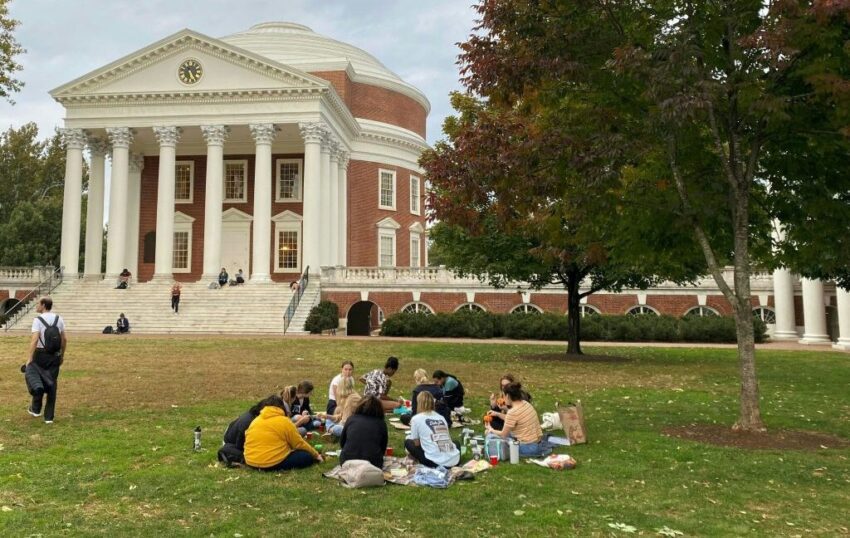
trump offers universities a choice comply for The Trump administration has proposed a controversial deal to nine universities, offering substantial federal funding in exchange for compliance with its educational priorities.
trump offers universities a choice comply for
Overview of the Proposal
On Wednesday, The Wall Street Journal reported that the Trump administration has reached out to nine universities with a significant proposition: align their operations with the administration’s priorities to receive “substantial and meaningful federal grants” and other benefits. This offer, however, comes with a stark warning: failure to comply could lead to the withdrawal of federal programs that many universities rely on for their survival.
Details of the Offer
The proposal, which has been dubbed the “Compact for Academic Excellence in Higher Education,” outlines a series of requirements that institutions must meet to qualify for federal funding. These stipulations encompass a wide range of university operations, including:
- Hiring practices
- Admissions standards
- Grading policies
Moreover, the document appears to include provisions aimed at promoting conservative ideologies on campus, suggesting a shift in the educational landscape that could favor certain political viewpoints over others.
Targeted Institutions
The initial list of universities targeted by this proposal includes a mix of state and private institutions:
- University of Arizona
- Brown University
- Dartmouth College
- Massachusetts Institute of Technology
- University of Pennsylvania
- University of Southern California
- University of Texas
- Vanderbilt University
- University of Virginia
While these nine universities have been specifically mentioned, independent reporting suggests that the administration plans to extend this offer to all colleges and universities across the nation. This broadening of the proposal raises questions about the implications for higher education as a whole.
Implications for Higher Education
The ramifications of this proposal could be profound, potentially altering the landscape of American higher education. By tying federal funding to compliance with specific ideological and operational standards, the administration is effectively placing universities in a precarious position. Many institutions rely heavily on federal funding for various programs, including research, student loans, and faculty salaries. The threat of losing these resources could compel universities to reconsider their policies and practices.
Academic Freedom at Stake
One of the most pressing concerns surrounding this proposal is the potential impact on academic freedom. Critics argue that by imposing specific ideological standards, the administration could stifle diverse viewpoints and limit the scope of academic inquiry. Universities have long been bastions of free thought, where a variety of perspectives can be explored and debated. If institutions are forced to align with a particular political agenda to secure funding, the very essence of academic freedom could be compromised.
Impact on Student Experience
The proposed changes could also significantly affect the student experience. If universities are compelled to adopt conservative hiring practices or admissions standards, this could lead to a less diverse student body and faculty. The richness of the educational experience often stems from exposure to a variety of perspectives and backgrounds. A shift toward a more homogenous environment could diminish the quality of education and limit students’ ability to engage with differing viewpoints.
Reactions from Stakeholders
The proposal has elicited a range of reactions from various stakeholders within the higher education community. University administrators, faculty members, and student organizations have expressed concern over the implications of such a deal.
University Administrators
Many university leaders have voiced their apprehension regarding the potential loss of autonomy. The prospect of having to conform to government mandates in areas such as hiring and admissions is seen as a direct threat to institutional independence. Some administrators have indicated that they would be willing to forgo federal funding rather than compromise their values and mission.
Faculty and Academic Organizations
Faculty members and academic organizations have also raised alarms about the proposal. The American Association of University Professors (AAUP) has issued statements condemning the plan, arguing that it undermines the principles of academic freedom and shared governance. Faculty members fear that the imposition of ideological standards could lead to a chilling effect on research and teaching, as educators may feel pressured to conform to a specific narrative.
Student Organizations
Student organizations have similarly reacted with concern. Many students value the diversity of thought and expression that characterizes their campuses. The idea that federal funding could be contingent upon adherence to a particular ideological framework has sparked fears of censorship and a loss of the vibrant discourse that is essential to the college experience.
Historical Context
This proposal is not the first time that federal funding has been used as a lever to influence higher education. Over the years, various administrations have sought to impose conditions on federal funding, often in response to political or social movements. However, the current proposal marks a significant escalation in the use of funding as a tool for ideological alignment.
Previous Attempts at Influence
Historically, federal funding has been tied to compliance with certain regulations, such as Title IX, which prohibits sex discrimination in education. However, these regulations have typically focused on ensuring equal access and protecting the rights of marginalized groups, rather than promoting a specific ideological agenda. The current proposal, in contrast, appears to prioritize the promotion of conservative values, raising questions about the motivations behind such a shift.
Potential Legal Challenges
As the proposal unfolds, it is likely to face legal challenges from universities and advocacy groups. Legal experts have noted that tying federal funding to compliance with ideological standards could violate principles of academic freedom and free speech. If universities choose to contest the proposal in court, it could lead to a protracted legal battle that may ultimately shape the future of federal funding for higher education.
Constitutional Considerations
Legal scholars have pointed out that the First Amendment protects academic freedom and free speech, suggesting that any attempt to impose ideological standards could face constitutional scrutiny. Universities may argue that the government’s actions constitute an infringement on their rights to determine their own educational missions and policies.
Conclusion
The Trump administration’s proposal to offer preferential funding to universities in exchange for compliance with its priorities has sparked a significant debate within the higher education community. As institutions grapple with the implications of this deal, the potential impact on academic freedom, student experience, and institutional autonomy remains a pressing concern. The proposal not only raises questions about the future of federal funding for higher education but also highlights the ongoing tensions between government influence and academic independence.
Source: Original report
Was this helpful?
Last Modified: October 2, 2025 at 11:36 pm
0 views














